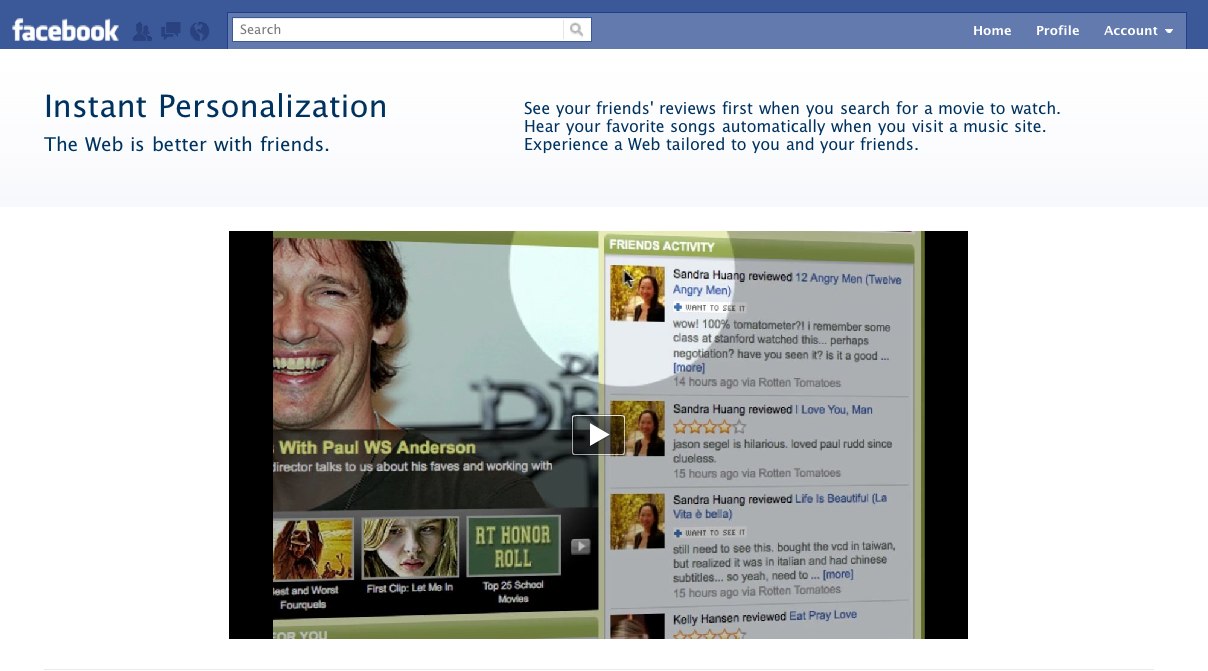Facebook settings: A tale of two defaults

Another new Facebook feature can only mean one thing: it's time to review my privacy settings again.
Once again, Facebook has rolled out some new features affect how much of your information can be viewed by others - hackers, non-Facebookers, advertisers and so on. And once again, Facebook has botched how they've rolled these out.
Here's what I'm quickly learning about Facebook when it comes to rolling out new features. If the feature is a benefit to Facebook, then you're automatically added in. But if the feature benefits you - and not necessarily Facebook - then it's up to you to go in and adjust your settings.
Today, the company announced a new HTTPS browsing capability, which essentially puts your Facebook browsing experience behind a secured Web browser so that others can't access it - just like your bank does when you're paying bills online or online retailers do when it comes time to make your purchase.
That means the company is making it possible for users to put their Facebook pages behind that secured browser, as well - but those users have to go in to the settings to manually activate it. Facebook isn't making that feature a default setting.
Just yesterday, I wrote about a feature called Sponsored Stories, where Facebook links your "likes" and other info with advertisers to create ads that feed to your friends. if you liked a movie and said as much on Facebook, then the company is going to place an ad on your friends' pages that says as much - though made to look like an ad for that movie.
From what I can tell, there's no way to opt-out of this one.
And then there's the Instant Personalization feature, which rolled out last Spring but I must have missed because I'm only hearing about it now. The idea behind that one is to take the information about what you like - favorite songs, movies, books and so on - and share that information with "partner sites" so they can share make your Web browsing experience that much more personal.
In case you didn't know it, that feature was enabled, by default, for every Facebook page. I disabled mine this morning - though it seems like my information has been swirling around out there for months.
Here's my question: What is it going to take for Mark Zuckerberg and the rest of the Facebook team to finally get the message that we want our privacy respected? If I wanted my Web experience to be more personalized, give me the option of opting-in to those features. Don't just include me in some money-making scheme that only further compromises my privacy.
It's deceptive. It's shady and it's just flat out wrong.
Within the privacy settings, there's a page called "Controlling How You Share." On it, there are tips about how to adjust your privacy settings. And further down, the company offers this tidbit of information about its advertising policies. It reads:
We never share your personal information with our advertisers. Facebook's ad targeting is done entirely anonymously. If advertisers select demographic targeting for their ads, Facebook automatically matches those ads to the appropriate audience. Advertisers only receive anonymous data reports.
When I read trash like this, I want to call Zuckerberg and tell him, "Liar, liar, pants on fire..." At this point, I no longer have any faith in Facebook to keep its word.
Here's the thing: With more than 500 million people on the network - many of whom seem to be addicted - does Facebook get a free pass to do whatever it wants, recognizing that half-a-billion people aren't just going to walk out of the party over something like this? Apparently, Facebook thinks that it has a long-term lock on these users and that nothing will upset us enough to walk away.
Then again, I remember when MySpace used to be the leader in social networking.
